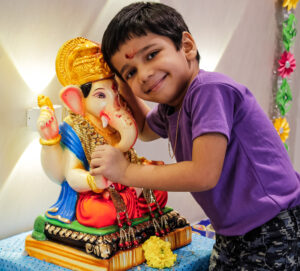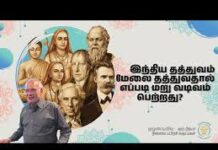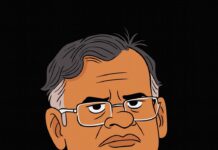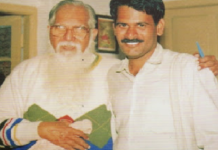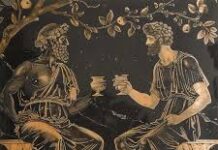A few days ago, I had a conversation with my Arab friends. They believe that the problem in countries like Japan, Germany and India is their population. One has too many people, others not enough. One Arab friend said to me, “Many Muslims are migrating from Africa and Syria to Europe, this will soon lead to an increase in the Muslim population there”. He and other friends talk about their dream of a world dominated by Islam, not just on that day but on multiple occasions.
It’s obvious that some current political movements in the Middle East align with this idea.
Previously, there was an essay on your website about the “Muslims’ dream” of global rule and Mr. Abhilash wrote another essay refuting this idea. I had posted a comment on the internet about this article at that time.
In India right now, there are left-wing ideologies inspired by Marx and there are political parties that have sprung all over Tamil Nadu promoting Periyar with the propaganda, “If Hinduism is destroyed, the caste system is destroyed”. Also, Abrahamic religions are spreading the idea that temples are inhabited by demons and devils. All these groups are politicising the issues very well indeed.
In this situation, a question has been lingering in my mind ever since I read the essay “Is it wrong to believe in a single God?” today.
“At this moment, those who identify as Hindus should strive to completely separate Hindutva politics from both Hinduism and Hindu culture.”
“Let Hinduism be guided by the wise and governed by its books of wisdom. It has grown through its tendency to branch out, its openness to all questions, and its resolve to retain unique identities. “
As a Hindu, I agree that this is truly the right answer on a spiritual level. But still…
…..
Your book, “Indhiya Gnanam,” (Indian Wisdom) introduced me to the concept of Paganism in Europe and the existence of magnificent cultures like Mesopotamian, Persian, Abyssinian, and Gandhara that have now vanished.
Currently, when I spend time with my Indonesian friends (who have names like Devi, Satyavati, Indira, Shakti), I often notice remnants of ancient cultures fading away in their identities.
This is also true for countries like South Korea and the Philippines. In India, I believe Hinduism and Hindu culture are still struggling to recover from a crisis that has lasted for the past five hundred years.
I sincerely say, without any exaggeration, that without your website, I, who was born and raised in India, would not have understood Hinduism at all. The article “Am I a Hindu?” was the first one that enlightened me.
At this point,
- Is it possible for India to preserve Hinduism without a political state that is specifically Hindu?
- How can I maintain faith in the idea that Hinduism will remain unscathed in the long run?
The current situations in the North-Eastern states and Kashmir suggest that this belief may not be accurate.
As an average Hindu,
- Even though we understand that Hindu fundamentalists cannot enhance the plurality of Hinduism,
- Even if we were to disregard the above-mentioned “threats” as baseless,
- And if we were to argue that it’s simpler to discover Hindu diversity in the singular Hindu religion proposed by the fundamentalists rather than in the Abrahamic or communist religions,
- And if we were to consider Lakshmi Manivannan’s statement in his essay “The need for Periyars” where he says, “No group can stand on needs that don’t exist in the society,”
Can we then accept Hindutva politics?
Palanivel Raja
Dear Palanivel,
Your question resonates with me because twenty years ago, I was in the same position and had the same doubts. It took me a long time to gain the clarity I have today.
The first interpretation of your doubt is that politics and power establish religion. This idea has been rigorously propagated for fifty years by groups seeking political power. Arguing with such a powerful organisation is challenging. However, by observing yourself and those around you, you can easily arrive at the right answer.
I’d like to share an experience. In October 2016, I visited Kedarnath with friends. We trekked 13 km to the top where a Pooja was taking place in the temple. The tantric rituals that were conducted provided both a sensory and a spiritual experience. It felt like we were witnessing something timeless. However, most people in the crowd were busy capturing the shrine and the Pooja on their phones. When the priests came out with torches to perform a ritual outside the temple, the crowd followed them, still recording on their phones.
You can often see such scenes in the temples of Tamil Nadu, replete with ritual transgressions and desecration. These actions are carried out by individuals who identify as Hindus, yet they struggle to articulate even ten sentences in defence of Hindu philosophy. They lack a basic understanding of their own religious practices and all their interests seem to be solely focused on themselves.
So, who truly upholds Hinduism? Is it these individuals who are born into the religion, who only when faced with problems throng temples on their astrologer’s advice? Can Hinduism’s survival depend solely on retaining this group through political power?
This perspective is held by those who view Hinduism merely as a means of exerting control and power. They live in fear of losing their dominance and power disguised as religion. However, religion cannot be established or sustained through dominance or power. A religion founded on such principles becomes a tool for control and power and is no longer a path to seek truth.
Religion comprises three layers : it serves as a guide to truth, acts as a repository of ancient cultural elements and presents a compilation of various ways to lead life. It continues to exist as long as people believe in these three aspects and incorporate them into their daily lives. If these three components are weakened, the religion will decline. Power cannot rescue a faltering religion. In fact, wielding such power could further degrade and destroy the religion.
The idea of ‘protecting a religion’ is misguided. It positions itself outside the religion and perceives it merely as an identity. It is not ‘something that is meant to be protected’. Religion should be a part of everyday life, guiding us in our search for truth. There’s no need to fight for religion. It’s enough to seek truth initially through religion and start living a life aligned with it. That’s the true purpose of religion.
This is where religious politics creates a lot of tension. It’s becoming clearer to me that religious politics tells everyone that religious beliefs, quests, and practices aren’t important. What matters is religious identity. The goal is to adopt that identity collectively and use it to gain power.
This kind of religious politics is rooted in the liberalism that modern Europe has developed. It’s based on scientific logic and categorizes and groups things objectively. Liberalism goes a step further and looks down on religion. It treats all traditions this way. It acts as if it respects religion, but it only values and honours what it can understand through its logical system. It then uses these elements to build its political agenda.
Under the guise of Hindu politics, there’s a massive standardization taking place. This process wipes out the complex subtleties and introspective elements of the religion, as well as its creativity that comes from its ability to branch out from its various subsets. A Hindu can only discover his truth by concentrating on a single facet of Hinduism and progressively deepening his understanding. This profound, personal depth is sacrificed to politics, with spiritual spaces like prayer rooms and meditation halls being replaced by political arenas.
In essence, this approach uses tradition and religion merely as tools for power politics. Even a common street fighter doesn’t hesitate to belittle any religious scholar or saint who voices an opinion against their political agenda.
Looking at the core sentiment behind this politics will give you clarity – negativity, verbal abuse, and the constant naming of perpetual enemies and ‘traitors’. Is this what you call Hinduism? Can you protect a religion created by sages and yogis while being filled with so much negativity and daily abuses? If your existence is solely about verbally attacking others every day, you should take up some sort of politics, but not under the banner of Hinduism. The emotional acceptance and inner depth of Hinduism are entirely different.
Consider these so-called protectors of religion. They are like a street gang, unable to recognize a scholar or a saint. They are thugs who attack their ‘enemies’. They are a crowd that knows nothing about their own religion. If they are the ones to save your religion, what does that say about your own view on religion? What kind of Hindu are you if you can’t look at a believer of another religion with love and instead see them as your natural enemy? What’s the point of preserving Hinduism as such a religion?
These people are subtly changing our religion. They’re destroying its core elements and turning it into a set of political symbols. We unknowingly fall for it and lose the ability to understand the ancient depths of our religion. The loss is immense. In today’s world, this is what Hindu scholars should be advising Hindus about.
Is Hinduism dying? I can’t say for sure. But Buddhism is facing significant destruction in many countries. Given the philosophical and belief similarities between Hinduism and Buddhism, Hinduism could potentially face a similar threat. The decrease in Buddhism wasn’t caused by external invasions, but rather due to internal issues within the religion itself. People didn’t leave Buddhism because they were ‘taken’ away; they left out of a lack of understanding.
Buddhism stagnated and became corrupt, alienating itself from the people. It turned into empty rituals and beliefs, losing its philosophy and vision. It failed to empower its people to face modern life. It abandoned its egalitarian visions and spoke of supremacy. In other words, Buddhism became an identity rather than a way of life. People walked away from that identity, not from the holistic religion called Buddhism. Many remain atheists and Christians while superficially retaining their Buddhist identity.
There’s an ongoing unreasonable attack by universal liberalism on the foundations of ancient religions like Buddhism and Hinduism in the intellectual world. Both European liberalism, underpinned by a Christian reformist orientation, and secularism approach ancient philosophies and ways of life like Hinduism, Buddhism, Jainism, Taoism, and Shinto with distaste. They throw abominations at us in the name of reformative views and sophisticated research. These are the ideas that surround us in academia and the media.
We are submissive to modern education which often leads us to feel disconnected from our traditions and philosophies. In an attempt to appear modern, humanitarian, and scientific, we often criticise our own traditions and philosophies. As a result, our religion is reduced to mere rituals and identities.
Today, there are only two types of Hindus. One group is influenced by modern liberalism and lives as Hindus in a family setting without truly understanding what it means. They dismiss Hinduism collectively. The other group follows certain Hindu beliefs and rituals to navigate life’s challenges. Neither group truly understands Hinduism, treating it merely as an identity.
This is where the decline lies. Hinduism will only perish if this decline is not addressed. This should not be done on a political platform. Hindu politicians simply echo what liberals say, but in a different manner. They use religion as a mere political symbol, asking people to carry flags in their rallies and act as representatives of their power politics.
Every politician discussing our religion is advocating for its Europeanization, turning it into a monolithic system, similar to the Abrahamic religions. When questioned about their actions, they argue, ‘didn’t Islam do the same?’ or ‘Was it something Christianity didn’t do?’. In this way, they claim to protect the Hindu faith and its noble sentiments, by insisting on abandoning them in the first place.
The call of the day is to resist the attack by liberalism on the Hindu worldview, philosophy, and lifestyle. This can be achieved by studying its philosophy, adopting its culture as a way of life, and embracing its beliefs. Only learned individuals and scholars can guide this process. Books can be helpful too. As a true Hindu, start practising Hinduism for your own fulfilment and salvation. Your goal should not be to protect Hinduism, but to live as a Hindu.
Let’s assume that Hinduism is under threat from ‘outside,’ with conversions and the spread of other religious groups. Hindutva politics will not and cannot provide an iota of security against these ‘threats’. It can only exacerbate problems and emotions, turning those who are scared and confused into their voter base. This is the strategy of modern politics. If you have doubts, take a closer look at history!
The goal of any politics is to gain control of the state. The government is a collective of public funds. Those who are trying to unite us in the name of religion are asking us for the power to manage these funds. We should demand that those who ask for our tax money in turn use them to improve our lives. As for religion, we will take care of it ourselves.
Jeyamohan
Translated from Tamil by Swetha Mayuri
